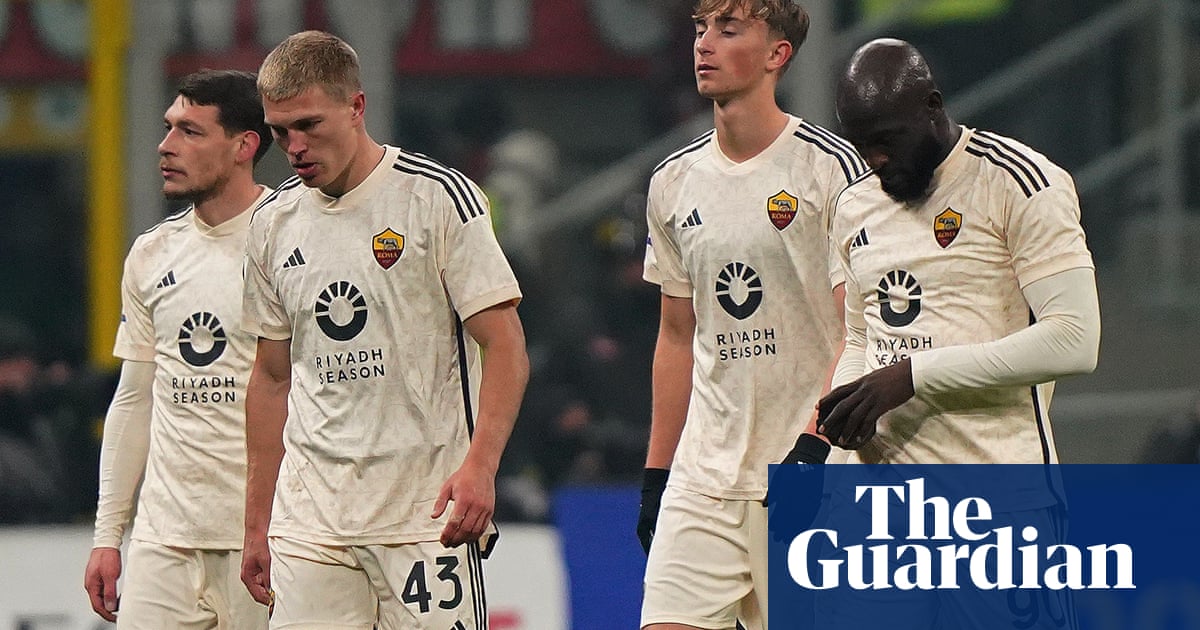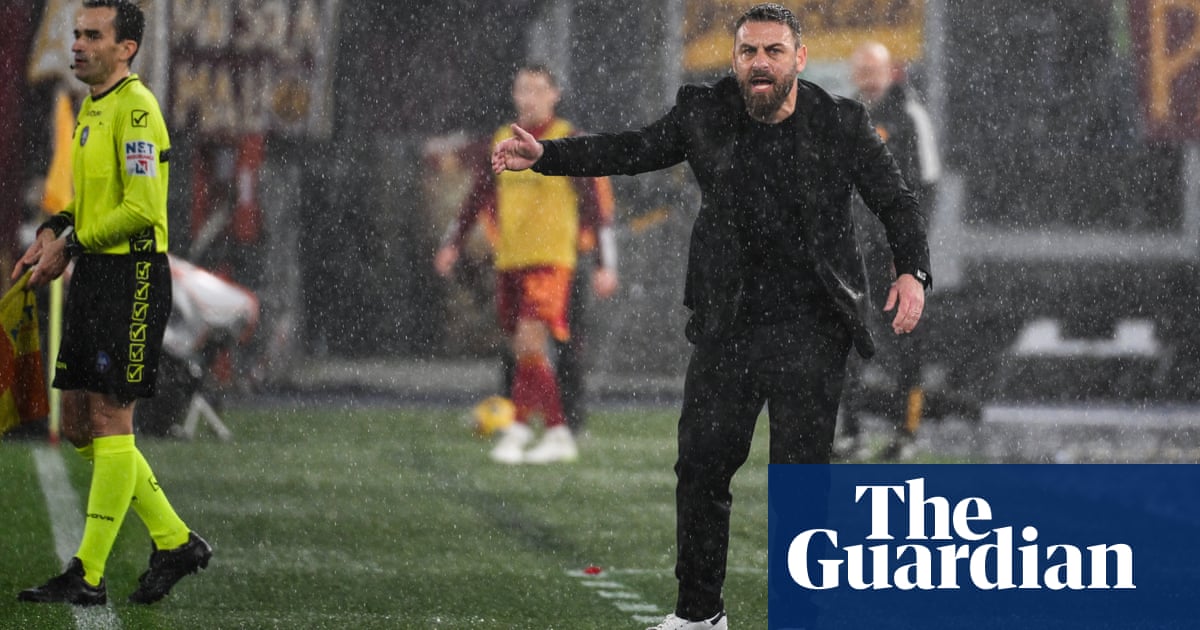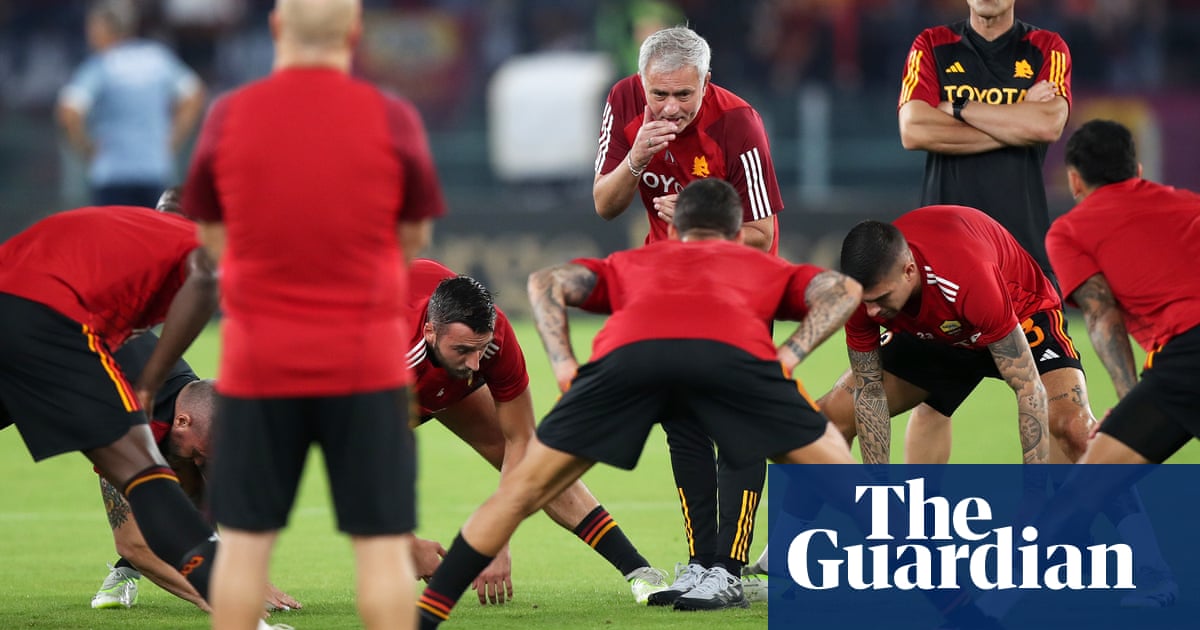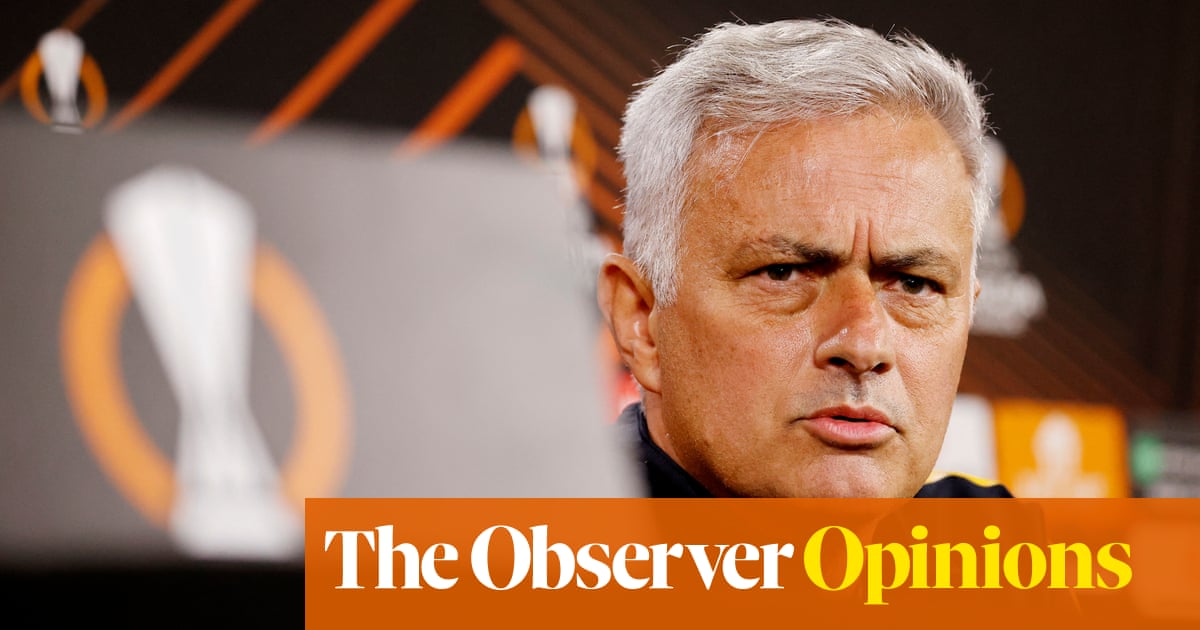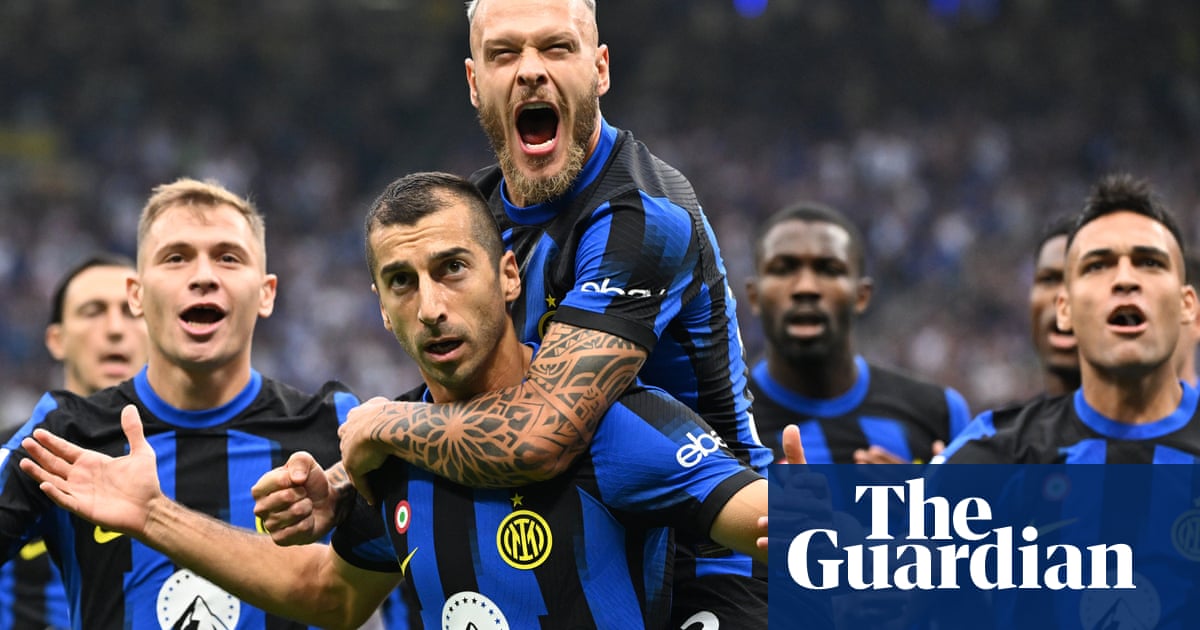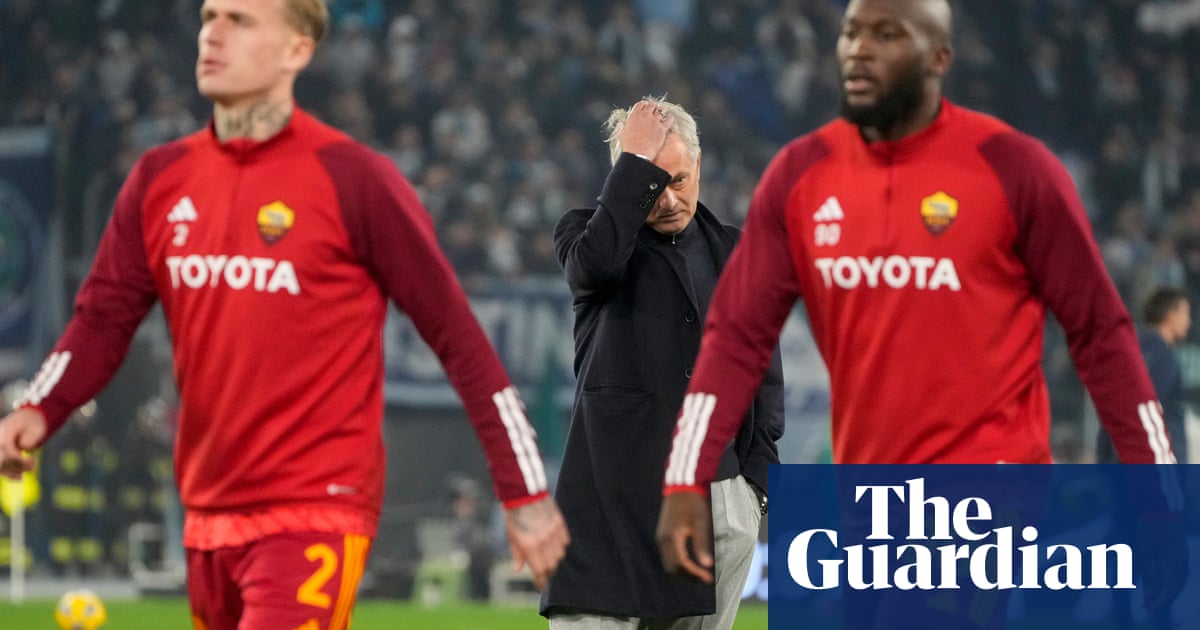
Perhaps the story should have ended in Budapest. There had been speculation leading up to the Europa League final last May that it could be José Mourinho’s final week in charge of Roma. There were echoes of his previous time working for an Italian club, in 2010, when he led Internazionale to the treble in his second season then left to join Real Madrid immediately after winning the Champions League.
He had not touched quite those same heights at Roma, but this was a different context. By claiming the inaugural Europa Conference League in his first season at the club Mourinho had already ended a 14‑year wait for silverware. To follow up in season two by lifting the Europa League would have been an extraordinary achievement with a side whose previous biggest continental success was winning the 1961 Inter-City Fairs Cup.
But it was not to be. In the final last spring, Roma led through Paulo Dybala but conceded an own goal and ultimately lost a shootout against Sevilla. Both the game and its aftermath were ugly, marked by relentless protests of refereeing decisions which culminated with Mourinho calling Anthony Taylor a “fucking disgrace” in the car park. A day later, the official had a chair thrown at him by Roma fans at the airport.
Yet there was another post‑game act that got as much attention back in Rome: Mourinho pointing to the ground as he looked to supporters in the stands, letting them know he intended to stay. To say they loved him would be an understatement. Mourinho has been the key factor in Roma selling out more than 40 home games over the past two and a half seasons, including a 36-game consecutive run.
When news broke of his sacking on Tuesday morning, fans rushed to the club’s Trigoria training complex for a teary farewell. To understand why he has been so adored might require an awareness of the football culture in Rome, a city that has long perceived itself as an underdog battling the wealth and political influence of clubs in the north.
Mourinho often reminded Roma’s fans how lucky they were to have him – noting that he had 10 more trophies in his personal collection than their club had earned in almost a century. Winning the Europa Conference League meant delivering on a promise to make his success theirs. More than that, he let them know he cared as much as they did, getting the trophy tattooed on his shoulder.
His presence made possible signings that previously were not. Dybala joined on a free transfer in the summer of 2022 and Romelu Lukaku on loan from Chelsea last year – two former Serie A MVPs in consecutive summers. Ten thousand fans turned out to see the Argentinian presented at Rome’s Colosseo Quadrato.
Yet 18 months later the club are left to ask if those highs were worth the cost. Mourinho has frequently defended his record in Rome by pointing out that the team have spent next to nothing on player transfers over the past two years, while generating significant profits from player sales. All true, but missing the necessary context that Roma spent more than €100m, net, to reinforce the squad in his first year, and continue to have Serie A’s third‑highest wage bill.
The club recorded a loss of €102.8m on last season’s accounts – half what it had been three years before but still hardly sustainable. When Roma’s American owner, Dan Friedkin, flew his private jet to Portugal on a mission to land Mourinho in 2021 he was making a bet on the manager steering his team into the Champions League – and securing the additional revenue streams that come with it.
A win against Sevilla in May would have got them there. Yet by the more conventional path of domestic performance, Roma have not come close. The Giallorossi finished sixth in consecutive seasons under Mourinho and now sit ninth, with one win in their past six Serie A games. Overall, he averaged 1.61 points per game – the worst return of any Roma manager whose tenure lasted 50+ games in the era of three points for a win.
That still might not explain the decision to fire him now. Mourinho has never been far removed from a war with officials – by one journalist’s count, there have been 29 red cards shown to members of Roma’s bench over the last two and a half seasons – yet the incident with Taylor felt like a tipping point.
Far from apologising, Mourinho accused his employers of abandoning him during an interview last summer, arguing that the incident in the airport had nothing to do with him and that someone from the club should have spoken up in his defence. Despite recent public claims that he was ready to sign a new contract, the sense of a breakdown in his relationship with the club had been building.
To replace him, Roma have turned to the former captain Daniele De Rossi. He is both a familiar face and a step into the unknown: a man who played more than 600 games for the club but whose managerial career so far has been 17 games in charge of Spal in Serie B – only three of which ended in victory.
By appointing another figure beloved by fans, the club may hope to deflect the hostility that would otherwise greet news of Mourinho’s sacking. “Everyone knows what Roma means to me,” De Rossi said in a statement. And he will know, as well as anyone, how much supporters adored the man he has replaced.




